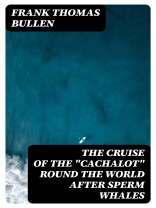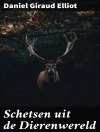In ‘The Cruise of the ‘Cachalot’ Round the World After Sperm Whales, ‘ Frank Thomas Bullen embarks on a captivating maritime adventure that intricately weaves elements of personal narrative with detailed observations of the whaling industry in the late 19th century. Through a blend of vivid prose and meticulous descriptions, Bullen immerses readers in the harrowing realities of whale hunting, navigating treacherous seas, and the camaraderie among sailors. His literary style is grounded in realism, providing an authentic glimpse into the whaling trade, while also reflecting the Romanticism of the sea that pervaded the literature of his time. Frank Thomas Bullen, a seasoned sailor and author, draws from his extensive maritime experiences to craft this compelling narrative. His firsthand knowledge of the whaling industry, coupled with his background in the British Royal Navy, lends an unparalleled authenticity to his observations. Bullen’s commitment to shedding light on the often brutal world of whaling reflects both his respect for the ocean and an emerging conservationist ethos that would resonate in future maritime literature. This essential read is not just a recounting of a journey; it is a poignant exploration of humanity’s relationship with nature. Recommended for readers interested in maritime history, ecology, or the intrigue of adventurous storytelling, Bullen’s account serves as a profound reflection on both the beauty and the peril of the natural world.
A propos de l’auteur
Frank Thomas Bullen (1857–1915) was a British author and novelist, best known for his seafaring tales based on his own experiences at sea. Bullen’s literary career was kickstarted with his most famous work, ‘The Cruise of the ‘Cachalot’ Round the World After Sperm Whales’ (1898), which vividly recounts the arduous and adventurous life aboard a whaling ship. This book was particularly acclaimed for its authenticity and detailed descriptions of the whaling industry, life at sea, and the many cultures Bullen encountered during his voyages. The ‘Cachalot’ was one of the first books to portray the hard life of seamen with such fidelity, drawing comparisons to the work of Melville. Bullen’s narrative is imbued with the literary style of realism, woven with elements of naturalism, which provides readers with a starkly genuine portrayal of the late 19th-century whaling expeditions. His ability to infuse his maritime adventures with human drama and naturalistic details reflects his substantial firsthand experience as a sailor and contributes to the enduring relevance of his literary contributions. Scholarly interest in Bullen’s work often centers on his insights into maritime history and his contribution to the genre of nautical fiction. He has been praised for his lucid and engaging prose, which continues to captivate those interested in maritime literature and the age of sail.












